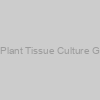Plantele au fost utilizate ca sursă principală de fitochimicale cu aplicații nutriționale, medicinale, culturale și cosmetice din timpuri imemoriale. În zilele noastre, realizarea dezvoltării durabile, schimbările climatice globale, accesul restricționat la apa dulce, aprovizionarea limitată cu alimente și cererea crescândă de energie sunt printre provocările globale critice cu care se confruntă omenirea. Tehnologia culturii de celule vegetale are potențialul de a aborda unele dintre aceste provocări, oferind instrumente eficiente pentru aprovizionarea durabilă a fitoingredienților cu amprente reduse de energie, carbon și apă. Scopul principal al acestei revizuiri este de a discuta despre tendințele recente în dezvoltarea tehnologiilor de cultură a celulelor vegetale pentru producția de substanțe derivate din plante cu aplicare în produse alimentare și formulări cosmetice.
Etapele și cerințele tehnologice specifice pentru produsele finale sunt discutate în lumina progreselor în tehnologiile de cultivare utilizate pentru cultivarea sistemelor in vitro de plante diferențiate și nediferențiate. Perspectivele viitoare și provocările existente ale comercializării produselor derivate din cultura de celule vegetale au fost subliniate prin prisma punctului de vedere al autorilor. Ne așteptăm ca această revizuire să încurajeze oamenii de știință, factorii de decizie politică și întreprinderile comerciale să se alăture eforturilor pentru accelerarea comercializării în masă și popularizării tehnologiei culturii de celule vegetale ca metodă alternativă ecologică pentru producția durabilă de aditivi derivate din plante cu aplicare în produse alimentare și cosmetice. produse.

INTRODUCERE
Culturile de celule vegetale sunt capabile să sintetizeze o gamă largă de fitochimicale care sunt utilizate ca produse farmaceutice, aditivi alimentari și ingrediente cosmetice. Deși majoritatea cercetărilor s-au concentrat pe producerea de compuși importanți din punct de vedere farmaceutic, în ultimul deceniu s-a înregistrat un avans remarcabil în dezvoltarea tehnologiilor de cultură a celulelor vegetale utilizate pentru producerea de ingrediente cosmetice active sau aditivi alimentari.
 Plant Preservative Mixture |
|
PCT03 |
Plant Cell Technology |
250 ml |
EUR 372 |
|
|
|
Description: Plant Preservative Mixture, also known as PPM, is a powerful biocide against waterborne, endogenous contamination, airborne, fungal contamination and human contact. It is a liquid solution that prevents and reduces microbial contamination in plant tissue culture, and it is an excelent replacement of the antibiotics. It targets and inhibits multiple enzymes, the formation of resistant mutants towards PPM is unlikely. It is used both as a biocide and biostatic compound as a preventative measure. |
 Plant Preservative Mixture |
|
PCT04 |
Plant Cell Technology |
500 ml |
EUR 540 |
|
|
|
Description: Plant Preservative Mixture, also known as PPM, is a powerful biocide against waterborne, endogenous contamination, airborne, fungal contamination and human contact. It is a liquid solution that prevents and reduces microbial contamination in plant tissue culture, and it is an excelent replacement of the antibiotics. It targets and inhibits multiple enzymes, the formation of resistant mutants towards PPM is unlikely. It is used both as a biocide and biostatic compound as a preventative measure. |
 Plant Preservative Mixture PPM |
|
PCT05 |
Plant Cell Technology |
1000 ml |
EUR 958.8 |
|
|
|
Description: Plant Preservative Mixture, also known as PPM, is a powerful biocide against waterborne, endogenous contamination, airborne, fungal contamination and human contact. It is a liquid solution that prevents and reduces microbial contamination in plant tissue culture, and it is an excelent replacement of the antibiotics. It targets and inhibits multiple enzymes, the formation of resistant mutants towards PPM is unlikely. It is used both as a biocide and biostatic compound as a preventative measure. |
 Supreme Plant Tissue Culture Grade Agar |
|
PCTA100 |
Plant Cell Technology |
500g |
EUR 144 |
|
|
|
Description: A polysaccharide complex that is produced from the red alga Rhodophyceae. The extraction of agarocytes is obtained by bleaching and hot water. Supreme Plant Tissue Culture Grade Agar offers greater clarity of plant culture media. |
 Supreme Plant Tissue Culture Grade Agar |
|
PCTA500 |
Plant Cell Technology |
1000g |
EUR 180 |
|
|
|
Description: A polysaccharide complex that is produced from the red alga Rhodophyceae. The extraction of agarocytes is obtained by bleaching and hot water. Supreme Plant Tissue Culture Grade Agar offers greater clarity of plant culture media. |
) Myoglobin (Up-converting Phosphor Technology) |
|
abx095254-80Units |
Abbexa |
80 Units |
EUR 1144.8 |
|
|
) D-Dimer (Up-converting Phosphor Technology) |
|
abx095256-80Units |
Abbexa |
80 Units |
EUR 1579.2 |
|
|
) Procalcitonin (Up-converting Phosphor Technology) |
|
abx095257-80Units |
Abbexa |
80 Units |
EUR 1429.2 |
|
|
) Interleukin-6 (Up-converting Phosphor Technology) |
|
abx095258-80Units |
Abbexa |
80 Units |
EUR 1914 |
|
|
) Creatine Kinase MB (Up-converting Phosphor Technology) |
|
abx095253-80Units |
Abbexa |
80 Units |
EUR 1144.8 |
|
|
) C-Reactive Protein (Up-converting Phosphor Technology) |
|
abx095259-80Units |
Abbexa |
80 Units |
EUR 1144.8 |
|
|
 (Up-converting Phosphor Technology)) Cardiac Troponin I (cTnI) (Up-converting Phosphor Technology) |
|
abx095252-80Units |
Abbexa |
80 Units |
EUR 1579.2 |
|
|
) Anti-ROBO1 Reference Antibody (Asclepius Technology anti-Robo1 CAR) |
|
E24CHA370 |
EnoGene |
100 μg |
EUR 225 |
|
Description: Available in various conjugation types. |
) Heart-fatty acid-binding protein (Up-converting Phosphor Technology) |
|
abx095255-80Units |
Abbexa |
80 Units |
EUR 1914 |
|
|
) Lipoprotein-associated phospholipase A2 (Up-converting Phosphor Technology) |
|
abx095250-80Units |
Abbexa |
80 Units |
EUR 1863.6 |
|
|
) N-terminal Pro-B-type Natriuretic Peptide (Up-converting Phosphor Technology) |
|
abx095251-80Units |
Abbexa |
80 Units |
EUR 1579.2 |
|
|
 ReadiLinkâ„¢ Protein Biotinylation Kit *Powered by ReadiViewâ„¢ Biotin Visionization Technology* |
|
5521 |
AAT Bioquest |
1 kit |
EUR 227 |
|
Description: Biotin is widely used for labeling biomolecules, in particular, antibodies. |
 ReadiLinkâ„¢ Protein Biotinylation Kit *Powered by ReadiViewâ„¢ Biotin Visionization Technology* |
|
5521-3Reactions |
AAT Bioquest |
3 Reactions |
EUR 222 |
|
|
|
Description: Biotin is widely used for labeling biomolecules, in particular, antibodies. |
) aCella - TOX 500 Tests (with 5 Lumi Plates + 5 TC Plates) |
|
CLATOX100-3P |
Cell Technology |
500 Tests |
EUR 965 |
) aCella - TOX 500 Tests (with 5 Lumi Plates) |
|
CLATOX100-3L |
Cell Technology |
500 Tests |
EUR 910 |
) Fluoro IndoBlu (with 5 Black Opaque Plates) |
|
INDBLU100-3P |
Cell Technology |
500 Tests |
EUR 172 |
) Fluoro IndoBlu (with 10 Black Opaque Plates) |
|
INDBLU100-4P |
Cell Technology |
1000 Tests |
EUR 322.5 |


